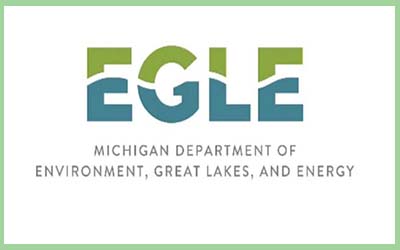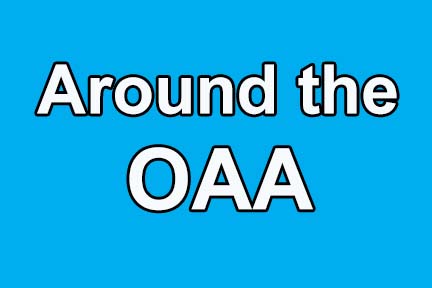|
Press Release
FOR IMMEDIATE RELEASE: April 11, 2023
CONTACT: Chelsea Wuth, 517-241-2112, WuthC@michigan.gov
Hometown Health Heroes and Jean Chabut Policy Champions honored by Michigan Public Health Week partnership
LANSING, Mich. – As part of Public Health Week in Michigan, 10 individuals and organizations will be presented with the 2023 Hometown Health Hero and Jean Chabut Health Policy Champion awards for their contributions to protecting and improving the health of Michigan. The Michigan Department of Health and Human Services (MDHHS) is a founding member of this partnership.
Hometown Health Hero awards are presented every spring as part of Michigan Public Health Week.
“Our Hometown Health Hero awards are a way for us to highlight selfless and dedicated champions of public health who are making incredible efforts to improve the lives of Michigan residents,” said MDHHS Director Elizabeth Hertel. “We celebrate all efforts, no matter how small or large, of health care professionals who make a positive impact on our state.”
2023 Jean Chabut Health Policy Champion Award
There are three recipients this year of the Jean Chabut Health Policy Champion Award. These individuals were nominated either by a member of their staff or members of their community. They have demonstrated an untiring commitment to the health and safety of their communities.
Jane Sundmacher, Northern Michigan Community Health Innovation Region
Jane Sundmacher established and expanded the Northern Michigan Community Health Innovation Region (NMCHIR), a 10-county collaboration supporting healthy people through partnerships of local health departments, hospitals, community-based organizations and more by aligning systems and addressing barriers to health and well-being. Sundmacher has secured millions of dollars of federal, state and local grant funding to support health department programming, mentor public health professionals, lead cross-jurisdictional sharing projects, and facilitate strategic planning for health organizations across northwest Michigan.
Northern Michigan Community Health Innovation Region (NMCHIR)
The NMCHIR has been recognized with a national Rural Health Innovation Profile for exciting and potentially replicable innovations in rural health care that show promise in improving health, care and lowering costs. NMCHIR achieved $3 million in Medicaid Health Plan savings between 2016 and 2021 by reducing emergency room visits by 23.5% and inpatient stays by 25.5%. NMCHIR uses a coordinated approach to address social determinants of health and represents a unique, collaborative strategy to improve conditions where people live, work, learn and play. Programming includes:
- Community Connections: A program addressing social determinants of health by connecting residents to community resources.
- Behavioral Health Initiative: A response to increasing behavioral health costs in the region to improve access to services and promotion of resiliency.
- Learning Community: A network of cross-sector partners with a common interest of amplifying resident voices and power, promoting health equity, and strengthening the 10-county digital neighborhood for improved coordination and alignment.
- MiThrive: A program bringing together cross-sector partners and residents in 31 counties including local health departments and hospitals to conduct common community health assessment and collaboration for community health improvement.
Ottawa County Department of Public Health
According to the National Association of County and City Health Officials (NACCHO), Project Public Health Ready (PPHR) is a criteria-based training and recognition program created by NACCHO and the Centers for Disease Control and Prevention to help local health departments develop core public health and emergency preparedness competencies. Ottawa County Department of Public Health first achieved PPHR recognition in 2017. They successfully completed the five-year re-recognition process in 2022. This intensive 18-month program provides local health departments with the structure to build training and preparedness capacity using a continuous quality improvement model. Through PPHR, local health departments demonstrate preparedness and response capability and capacity by showing they meet a nationally recognized set of criteria that are aligned with federal requirements and national best practices. This recognition is valid for five years, after which local health departments must reapply for recognition.
2023 Hometown Health Hero Award Winners
Lyn Campbell, Central Michigan District Health Department
Campbell serves residents in central Michigan living with HIV/AIDS through supervision of the Ryan White clinic. The Ryan White clinic operated by the Central Michigan District Health Department (CMDHD) has achieved a 100% viral suppression rate and is one of only a few clinics in the U.S. to offer CABENUVA, an injectable antiretroviral therapy medication to treat HIV/AIDS. Additionally, the CMDHD offers PrEP, a pre-exposure prophylaxis medication to reduce the chance of getting HIV from sex or injection drug use. Campbell and her team have brought in additional providers to offer full wraparound services for clients in one location. Case managers help coordinate care from basic needs to medication management. The Ryan White clinic at CMDHD is used as a model of success for other clinics.
Dana Kissner, MD, Detroit Health Department Tuberculosis Program
Dr. Kissner worked for decades to serve patients in the Detroit area and establish a tuberculosis (TB) clinic. The program offers a comprehensive approach including providing caregivers who speak multiple languages and treat the patient as a whole and not just their TB diagnosis. Kissner modernized the TB program at Detroit since joining the Detroit Tuberculosis Clinic in 2007. Kissner advocates for patients with complex backgrounds and ensures the social and environmental contexts are considered and addressed during treatment. As a result of these efforts, there have been no multi-drug resistant TB cases in the city of Detroit since 2012.
Carol Thornton, Dickinson-Iron Child Death Review Team
Thornton volunteered to create and lead a Child Death Review (CDR) team in Iron and Dickinson counties. The purpose of a CDR is to create activities and initiatives that can prevent future child deaths. CDR teams are not required in Michigan but help facilitate the review process for locations served. Thornton has helped families learn about teen suicide, safe infant sleep and safe sledding, as well as providing information on how to choose a safe vehicle for teens and keeping the vehicle properly maintained. Thornton’s dedication to health and safety aimed at preventing death has been incredibly beneficial for her community.
Christopher Petrat, Be Well Medical Center
Petrat was instrumental in broadening availability of the Jynneos vaccine during the mpox outbreak beginning last year. Petrat worked with community leaders and event organizers in the local LGBTQ+ community to set up vaccine tables at a variety of events on weekends and evenings and made sure the vaccines were available where community members felt secure and comfortable. More than 400 Jynneos doses were administered by the Be Well Medical Center where Petrat works, which was 3% of all doses administered in the state and 14% of all doses administered in Oakland County.
Jeremiah Hodshire, Hillsdale Hospital
Hodshire, the CEO of Hillsdale Hospital, has worked to increase specialists and services provided to the rural community of Hillsdale. He has been an advocate for rural health within the state and nationally. Additionally, Hodshire worked with local leaders to build trust with community members and help with the cost-sharing of medical expenses, which led to people accessing more preventative care instead of only receiving emergent care for more complex issues. Hodshire also worked to reopen My Community Dental Center to provide dental care to low-income and Medicaid patients, which decreased the number of patients visiting the emergency room for oral-related emergencies.
Dollar General
Dollar General partnered with Feeding America to positively impact food insecurity concerns across the country. In Michigan, Dollar General partners with the Food Bank of Eastern Michigan in Flint, Forgotten Harvest in Detroit and Food Gatherers in Ann Arbor. In 2022, Dollar General donated 168,000 pounds of food equaling approximately 127,000 meals. Produce was added to 38 stores in 2022, five of which were located in areas defined as a food desert. Throughout Michigan, 91 stores offer produce in 11 food desert areas.
Northern Michigan Opioid Response Consortium
The Northern Michigan Opioid Response Consortium (NMORC) serves 25 counties in the lower peninsula to offer a coordinated response to reduce opioid and substance use disorders. NMORC offers naloxone training and distribution, harm reduction activities including education, provider training and workforce assistance, and works to reduce stigma around opioid and substance use. NMORC uses data to offer best practices and coordinate comprehensive care to those affected by substance use. |




 Warm temperatures, winds and winter buildup of dry grasses and leaves have pushed fire danger to very high levels across the Lower Peninsula.
Warm temperatures, winds and winter buildup of dry grasses and leaves have pushed fire danger to very high levels across the Lower Peninsula.






